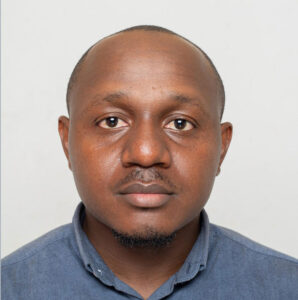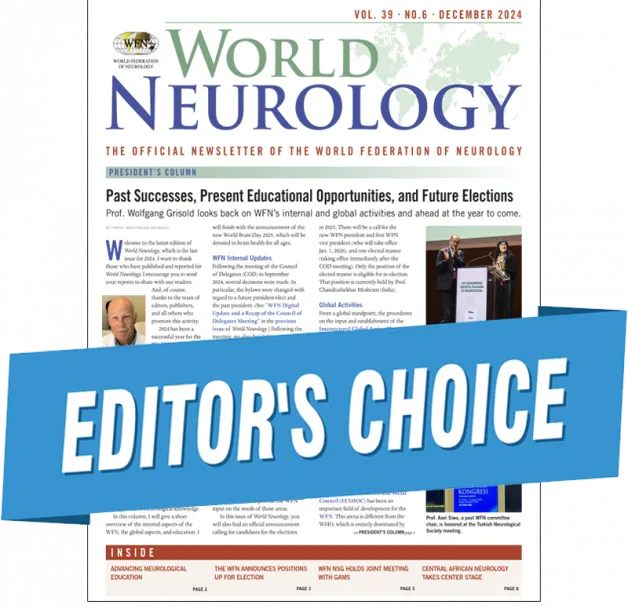 |
Daniel Gams Massi |
The Hybrid Presidential Symposium of the Fourth Congress of the Cameroon Academy of Neurology.
By Daniel Gams Massi
During its fourth congress from Oct. 18-20, 2024, in Douala, the Cameroon Academy of Neurology (CAN) organized its second hybrid Presidential Symposium. This session was enhanced by the participation of Prof. Wolfgang Grisold, president of the World Federation of Neurology (WFN), Prof. Lawrence Tucker, president of the African Academy of Neurology (AFAN), Prof. Amadou Gallo Diop, immediate past-director of the WFN Training Center of Dakar, Senegal, and Prof. Riadh Gouider, past trustee of the WFN and head of the neurology department of Razi University Hospital in Tunis. The symposium was chaired by Dr. Daniel Gams Massi, CAN secretary-general and AFAN treasurer.
Prof. Grisold opened the symposium with a presentation on the implementation of the Intersectoral Global Action Plan for Epilepsy and Other Neurological Disorders (IGAP). He outlined the concept of brain health and its five dimensions: advocacy, research, therapy, public health, and prevention. He also presented the vision, goals, and strategic objectives of IGAP:
- Raise policy prioritization and strengthen governance
- Provide effective, timely, and responsive diagnosis, treatment, and care
- Implement strategies for promotion and prevention
- Foster research and innovation and strengthen information systems
- Strengthen the public health approach to epilepsy
 |
The audience during the hybrid Presidential Symposium |
The audience was able to see the essential role the WFN plays in the implementation and promotion of IGAP worldwide, as well as the many opportunities the WFN offers for the development of neurology in Africa through training, research, and advocacy. This is an opportunity to recall that for several years the WFN has contributed to the training of Cameroonian neurologists through various programs. And through Education in Headache to Health Care Providers in Africa, the WFN also contributes to the continuing education of health care professionals in Cameroon.
Prof. Diop illustrated the idea of the African neurologist of tomorrow. He said that to carry out his missions, the African neurologist must be a good clinician, an ambitious researcher, a dedicated trainer, a skilled communicator, a community actor close to the population, and a citizen of the world capable of collaborating with African and foreign partners.
The symposium was closed by Prof. Tucker who discussed the integration of online training in EEG for residents and young neurologists. He shared the experience of the University of Cape Town’s online EEG course. It is a hybrid program with web-based courses, virtual seminars, and in-person clinical neurophysiology fellowships for recently qualified neurologists. Since 2018, numerous neurologists, neurology residents, and neurotechnologists from Africa and other continents have benefited from quality EEG training.
The symposium hosted 224 attendees, including neurologists, pediatric neurologists, neurosurgeons, pediatricians, psychiatrists, internists, residents of neurology, psychiatry, pediatrics, and general practitioners, nurses, and physiotherapists from 16 countries.
Editor's Choice
World Neurology | Dec 2024, Volume 39, No. 6








